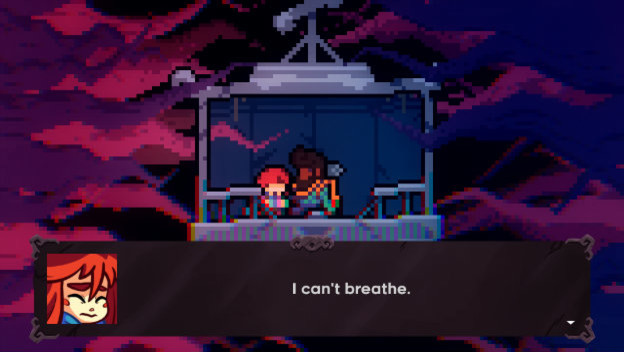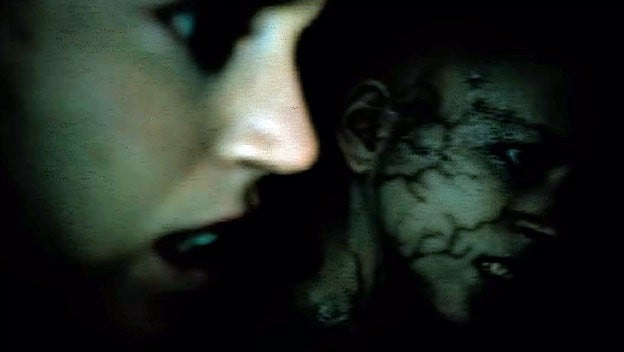Video games are growing up… or at least, video games are trying very hard to grow up. What this has meant, over a period of ten years or so, is more blockbuster games are presented as storytelling landmarks. Much like the rise of “prestige TV,” video game developers such as Naughty Dog and Ninja Theory are, from their perspectives, swinging for the fences with gritty narratives, realistic conflicts, and difficult subject matter. But while games are trying to do better, there are still subjects the industry is handling poorly, despite taking them more seriously. Chief among them is mental illness, a subject that, to be fair, is a work in progress in greater socioeconomic discourse outside of video games. But with games and some game studios practically using mental health as a brand, well, criticism in this space feels more important than ever.
If you’re wondering what brought this on, Ninja Theory is out there fronting like it’s the industry house of mental health advocacy. Keep in mind, this is the same developer responsible for the embarrassing, edgelord-friendly Devil May Cry reboot. Anyway, after the snafu with Capcom, Ninja Theory flirted with independence for a while, and Hellblade happened. It was an interesting game featuring a protagonist suffering from psychosis, and Ninja Theory made a big deal about its work consulting mental health professionals and other consultants. For some, Hellblade did an apt job portraying the illness and providing catharsis. For others, it came off as more predatory, grabbing at an easy target to earn prestige cred.
The problem with using mental illness as a narrative device is how difficult it is to understand what it’s like to have a mental illness if you don’t have one. And even if you do have one, it can be radically different in how it manifests compared to someone else. Lived experiences with invisible diseases vary wildly, and while professionals do what they can, there’s no way consultancy is a direct line to flawless representation. But because this attempt generally worked out to critical and financial acclaim, Ninja Theory is taking it further. Not only is Hellblade getting a sequel that seems to be upping the scale big time (and translating its mental health theme to myth, which I’m curious to learn how that works), another project was announced.
This next game, for now called Project: Mara , is once again presented as researched, consulted, and a realistic take on a mental illness. But it’s a horror game, and a horror game seemingly set in an institution of some sort. That’s one of the oldest tropes in the book. Horror stories and games using mental illness and medical aid as frameworks for horror is something that developed from society not handling mental illness well and has contributed to that still being a challenge today. So for Ninja Theory to start a new project with its new slate of ambitions with that framework has me really raising my eyebrows. Now, this could be an attempt at subversion, but the announcement trailer doesn’t inspire much confidence.

On the other hand, there are games that do a much better job with the subject material, but have problems in their own way. A great example is Celeste . While Celeste gets labeled as an indie game, it’s one that was high profile and received a lot of attention for factors including being an early Nintendo Switch game and being nominated for several awards (including The Game Awards). Celeste is a bright and colorful platformer, and uses that genre space to explore themes of overcoming anxiety and depression. Celeste is a great game, but it has a few issues with its message. One, Celeste uses anxiety and depression as a sort of parallel to difficult, super meat boy-like mechanics. It’s an extremely difficult game, and it does include multiple difficulty options (to its legitimate credit). Two, most of Celeste ’s storytelling is allegorical, albeit fairly generous about it. To me, someone who does have medical-grade anxiety, it’s weird that the spooky horror games get away with screaming, “yo this is about mental illness” while the more respectful and ambitious take has to be a quaint, chiptune-y indie and stuff the theme behind metaphors and in doing so, translate mental health as ridiculous platforming challenges.
In my head, I’m picturing a game that can be all of the above. It can tell a story that directly confronts what it’s like to have a mental illness. It’s written by people with knowledge from lived experiences rather than long-distance consultations from doctors or social analysts. It’s more than a quirky indie platformer (those games are still good though). It has a real budget, and large-scale narrative and entertainment ambitions. The problem is, it’s hard to get such a project green-lit without fighting social and economic barriers the rest of the world is still fighting to puncture. I think we’ll get there, but only by taking care to both appreciate current efforts, and criticize them where appropriate.
